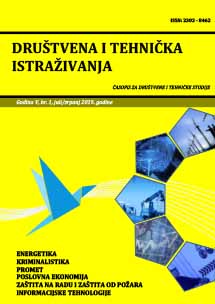PRAVILNIK O RADU AUTONOMNI IZVOR RADNOG PRAVA U HRVATSKOM ZAKONODAVSTVU
WORKING REGULATIONS AN AUTONOMOUS SOURCES OF LABOUR LAW IN CROATIAN LEGISLATION
Author(s): Ninoslav Gregorić - BajzaSubject(s): Economy, Law, Constitution, Jurisprudence, Civil Law, Law on Economics, EU-Legislation
Published by: Visoka škola “CEPS – Centar za poslovne studije” Kiseljak
Keywords: working regulations; adopting; publishing; entry into force; content; sanctions;
Summary/Abstract: Pravilnik o radu društveni je ili autonomni izvor radnog prava, koji je rezultat autonomije adresata koji ga donosi i na kojega se taj izvor radnog prava odnosi. Njime poslodavac uređuje prava, obveze i odgovornosti iz radnog odnosa u onim pitanjima koja nisu uređena kolektivnim ugovorom ili zakonom. Pravilnikom o radu detaljno se uređuju prava i obveze radnika i poslodavca u radnom odnosu ako poslodavac nije sklopio kolektivni ugovor ili ako neka pitanja vezana uz prava, obveze i odgovornosti stranaka u radnom odnosu nisu uređena kolektivnim ugovorom. Cilj rada je izložiti koji poslodavci imaju zakonsku obvezu donošenja i objavljivanja pravilnika o radu, opisati postupak njegovog donošenja i stupanja na snagu te ukazati na mogući postupak njegova stavljanja izvan snage, što Zakon o radu izrijekom ne definira. U radu će se naglasiti moguće posljedice nepoštivanja obveze i/ili postupka donošenja pravilnika o radu te posljedice povrijede ili ugrožavanja temeljnih prava radnika od strane poslodavca. Working regulations are social or autonomous sources of labour law, which result from the autonomy of the addressee which adopts such rules and to which this source of law refers. The employer uses them to regulate the rights, obligations and responsibilities derived from the employment contract regarding the issues which are not covered by the collective agreement of the law. Working regulations provide details regarding the rights and the obligations of both the employee and the employer derived from the employment contract if the employer has not signed a collective agreement or if some issues regarding the rights, obligations and responsibilities of the employment contract parties have not been regulated by the collective agreement. The aim of this paper is to state which employers have the legal obligation to adopt and publish working regulations, describe the procedure of adopting such a document and to point to the possible procedure for repealing it, which has not been defined by the Labour Act. This paper will emphasise the possible consequences of a failure to comply with the obligation and/or procedure of adopting working regulations and the consequences of violation and/or compromising the employees' basic rights on the part of the employer.
Journal: Društvena i tehnička istraživanja
- Issue Year: 2019
- Issue No: 1
- Page Range: 32-42
- Page Count: 11
- Language: Croatian

